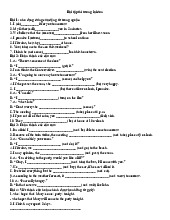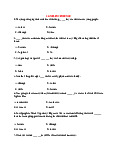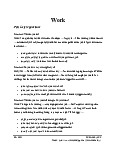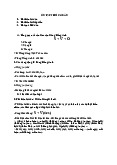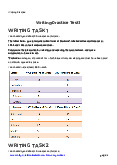

Preview text:
OUTLINE
Topic: Can music help you learn English? General purpose: To persuade
Specific purpose: To encourage our audience to make use of music while learning English
Thesis statement: In this speech, we will show 5 benefits of learning
the English language through music that my team has explored:
Effective method, easy applicability, skills improvement, deep
learning, emotion, cultural resources. I. Introduction A. Introduce team members
B. Ask the question: “Has anyone here ever tried learning English through music?”
C. Tell a story: When I was young, my brother let me listen
to ABC songs to remember the alphabet.
D. Give statistics: During these important years, the brain is
in a sensitive development stage, with 95% of its growth occurring at this time.
E. State thesis statement: In this speech, we will show 6
benefits of learning the English language through music
that my team has explored: Effective method, easy
applicability, skills improvement, deep learning, emotion, and cultural resources. (Transition to body) II. Body A. Effective method
1. Learning language through music is a popular method.
2. List the benefits of the “Mozart Effect”. B. Easy applicability
1. Music uses real-life words and communication. 2. Grammar is easy to apply. C. Skills improvement
1. Music helps learners how to pronounce and stress
2. Music also helps learners determine using which word in which case. D. Deep learning
1. Learning language is based on repetition
2. Give an example: Mentality is not presented at birth,
therefore children learn how to speak thanks to imitation and repetition
3. Music allows the repetition process. Because
learners can listen to their favorite song many times
and the chorus part is repeated several times. E. Cultural resources
1. Say a quote: “The world’s most famous and popular language is music.”
2. Explain a quote: Learning language is learning not
only the language but also its culture, and behavior of the society, etc.
3. Give an example: Create a forum to discuss slang words and informal words.
4. Give an example: Lady Gaga’s song helps learners
know about the American development about gender equality. (Transition to conclusion) III. Conclusion A. Restate main points
B. Relate back to the audience: Some people fail to use this
method to learn English because they ignore some
disadvantages of music such as grammatical errors, omissions, etc.
C. Provide a vivid ending: Learning English through music can be effective, or not depending on learners’ experiences.
